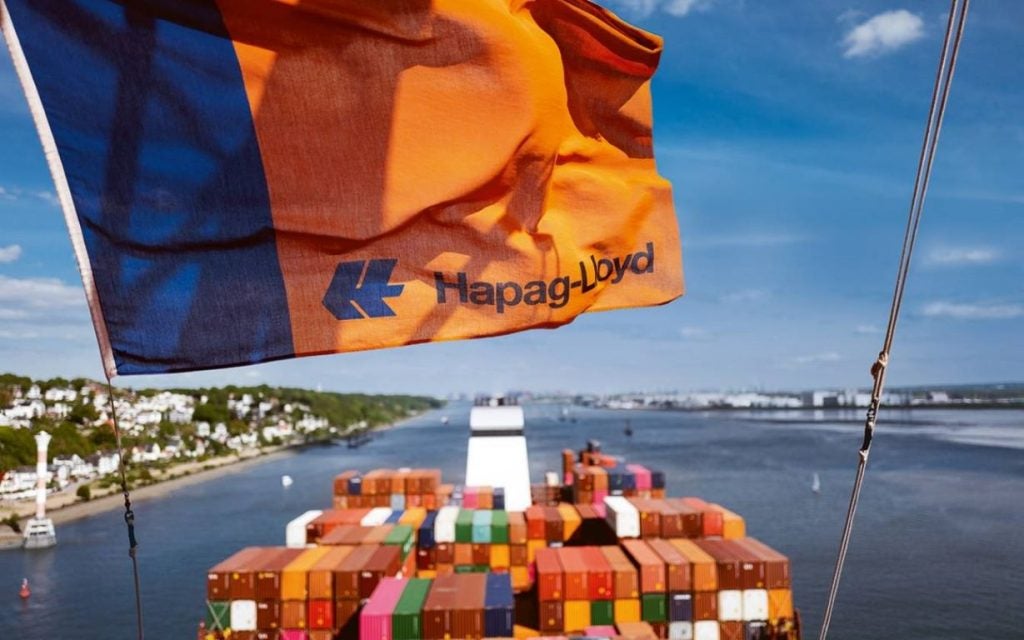International container shipping group Hapeg Lloyd recorded a decline in transport volumes during the fourth quarter of 2023 due to ongoing tensions in the Red Sea. As a result, the German-domiciled company saw its share price fall sharply.
Based on preliminary and unaudited figures, the Group's reported 2023 earnings before interest, taxes, depreciation, and amortisation (EBITDA) stood at $4.8bn (€4.45bn), a $15.6bn decrease on the previous year. The Group’s EBIT also experienced a similar decrease, falling $15.7bn from $18.5bn in 2022 to $2.7bn last year due to lower freight rates caused by the normalisation of global supply chains.
The company's annual revenues fell by 47% from $36.4bn in 2022 to just $19.4bn last year, mainly due to a lower average freight rate of $1,500 per twenty-foot equivalent unit (TEU), compared with $2,863/TEU the previous year. Despite the decrease in the freight rate, transport volumes for the entire year of 2023 increased slightly by 0.85%, reaching 11.9 million per twenty-foot equivalent unit, compared with 11.8 million in 2022.
“However, the conflict in the Red Sea negatively impacted transport volumes at the end of the year, as the rerouting of ships around the Cape of Good Hope extended voyage times,” the company said in a statement.
Shipping companies are avoiding the route through the Suez Canal due to ongoing attacks on cargo vessels in the Red Sea by Houthi rebels, the head of Hapag-Lloyd told reporters in Hamburg, Reuters reported.
In a news briefing, Rolf Habben Jansen said: "We don't think it will be over the day after tomorrow. Whether it will be one, three or five months – I don't know."
Last updated on 26 January, the company provided a live tracking application for the cargo ships and said: “We have had to take the decision to avoid the Suez Canal and the Red Sea with immediate effect, and instead route our ships around the Cape of Good Hope.”
The attacks in the Red Sea have led to an increase in the prices of goods and significant delays in the transportation of commodities between East Asia and Europe. This has resulted in the re-routing of ships, seizure of vessels and increased travel time and costs.
Many more companies have announced the suspension of supplies due to increased costs and delayed deliveries, disrupting the supply chains of various commodities.









